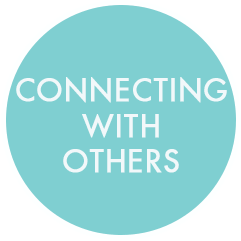I am often asked the question – how can I change my behaviour when certain relationships push my buttons?
I am sure anyone reading this can identify. We all have blind spots in relationships and games that we have perfected over years to protect us from experiencing strong emotions.
Dr. Eric Berne is the author of Games People Play, the groundbreaking book in which he introduces Games and Transactional Analysis to the world. According to Dr. Berne, games are ritualistic transactions or behaviour patterns between individuals that can indicate hidden feelings or emotions. A runaway success, Games People Play spent more than two years on the New York Times bestseller list in the mid 1960s – longer than any non-fiction book over the preceding decade. Games People Play and Transactional Analysis have gone on to influence and inspire millions of people, including Thomas A. Harris, author of I’m OK – You’re OK and Muriel James, author of Born to Win.
This model is used as part of the Emotional Intelligence Profile tool that was developed by JCA Global. They developed this leadership tool to measure individual Emotional Intelligence. I use this tool in the work that I do with individuals and leadership teams to help them understand their own behaviour and the impact of this on their ability to influence and build relationships when their buttons are pushed. The model I’m OK – You’re OK provides an experiential experience that allows an individual to consider what events, situations or individuals move them from a place of influencing positively.
'From my own experience I had to truly understand the impact of my personality preferences, and how emotional triggers from the past influenced my emotions, thoughts and behaviour in relation to certain relationships. When my buttons where pushed, I would either become submissive, or more aggressive in my response (flight or fight) and I would limit my potential. My response and reaction was often very child-like. By learning who pushed my buttons I was able to use strategies to process my emotions before moving into a responsive state. This transformed my relationships and how I performed at work.'
This is emotional intelligence.
6 Steps to developing better relationships
Identify which relationships at work challenge you more?
Be curious about why these relationships push your buttons – what exactly happens when you connect? It might be that you feel unheard, that they aren’t listening to you. It might be that they are aggressive or submissive in their behaviour and this is a particular trigger for you. They might remind you of someone from your past where your experience was negative.
Explore what physical feelings you get when your buttons are pushed. For me I would feel sick in the pit of my stomach and my neck would tense up.
Then explore your thinking – what is the dialogue that happens when you experience these feelings?
What are your patterns of behaviour? – when I experienced uncomfortable emotions I would want to suppress them, change them or avoid them which impacted my behaviour and my fight or flight response.
Identify what changes you can make when these feelings are triggered. I now recognise people and events that trigger these emotions. I allow myself time to reflect and process these emotions before responding. I then choose my response appropriately most of the time
Emotionally-i-Fit now run a 1 Day Managing through Emotional Intelligence and a 1 Day Leading through Emotional Intelligence Workshop. The workshops can accommodate 12 delegates and during both of these days delegates will identify how they can change their behaviour to develop stronger relationships at work.
Amanda Wildman - Director of Emotionally-i-Fit is an expert in Emotional Intelligence and leadership development.
Emotionally-i-Fit runs assessments, coaching programmes, workshops and leadership retreats that help leaders and organisations to measure and develop the 16 metrics of Emotional Intelligence.



